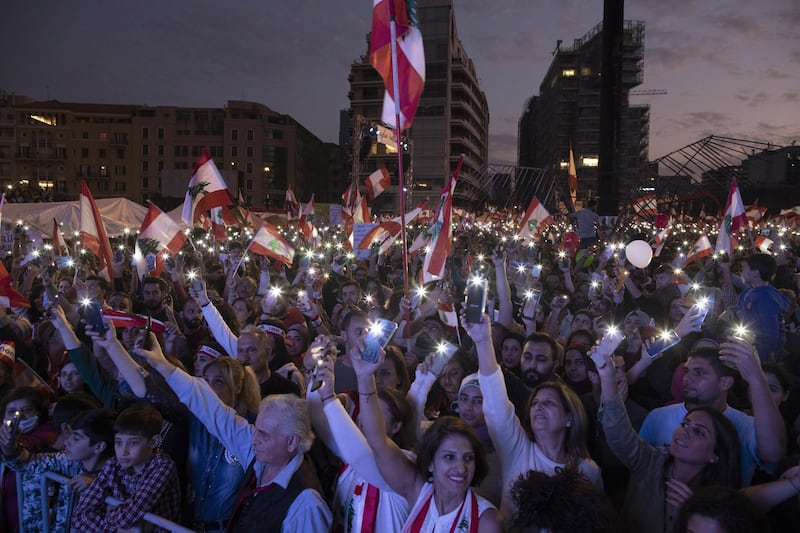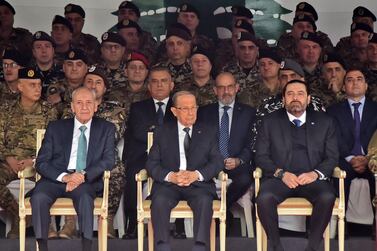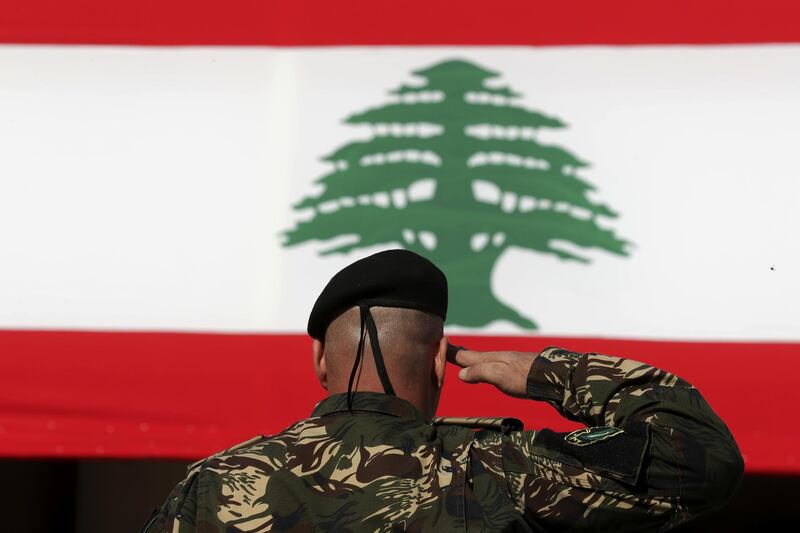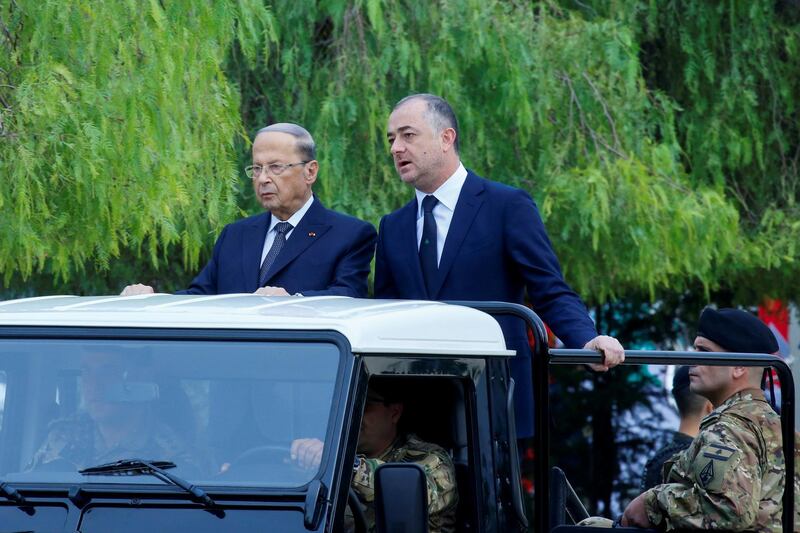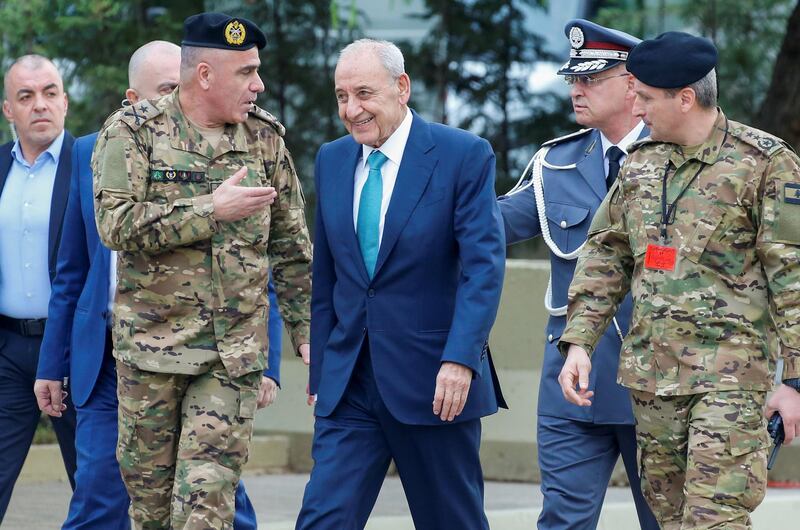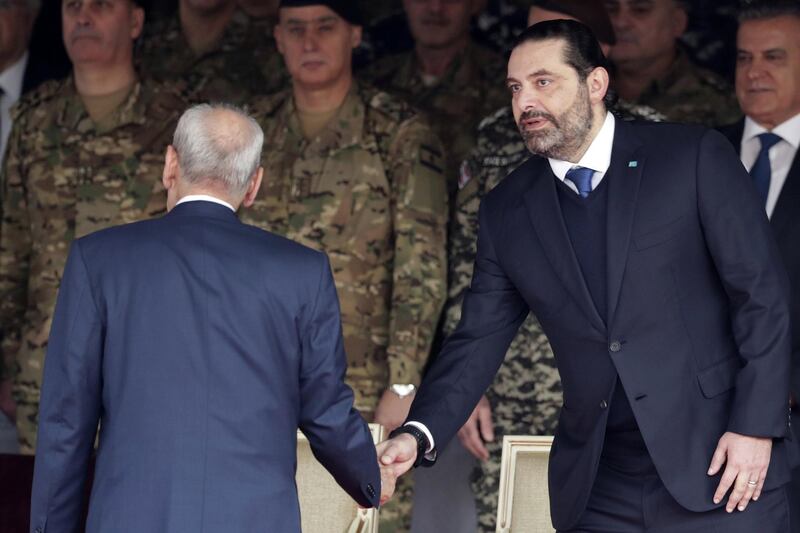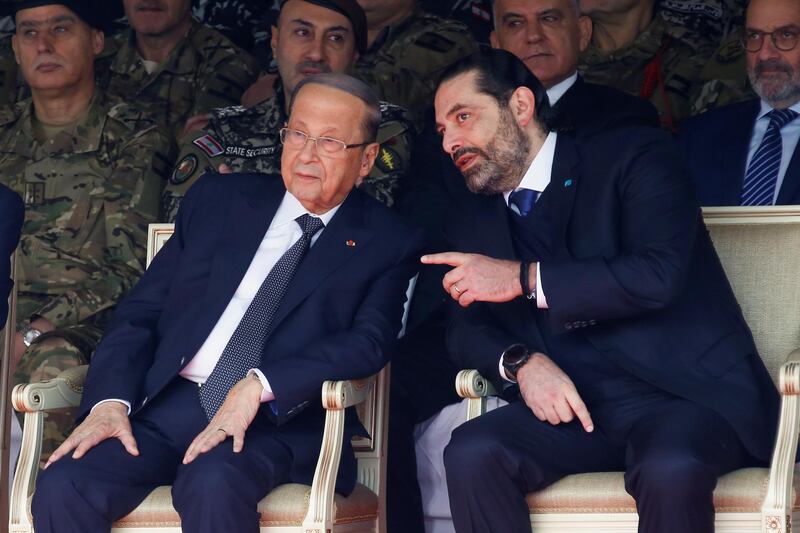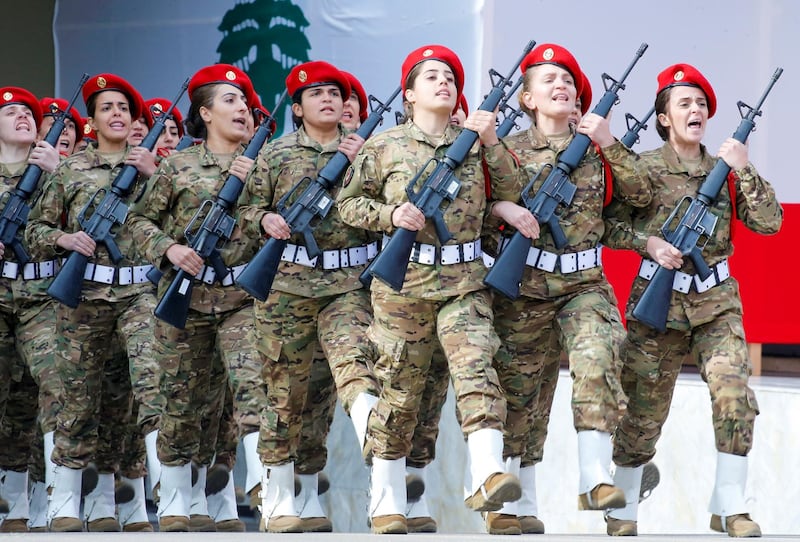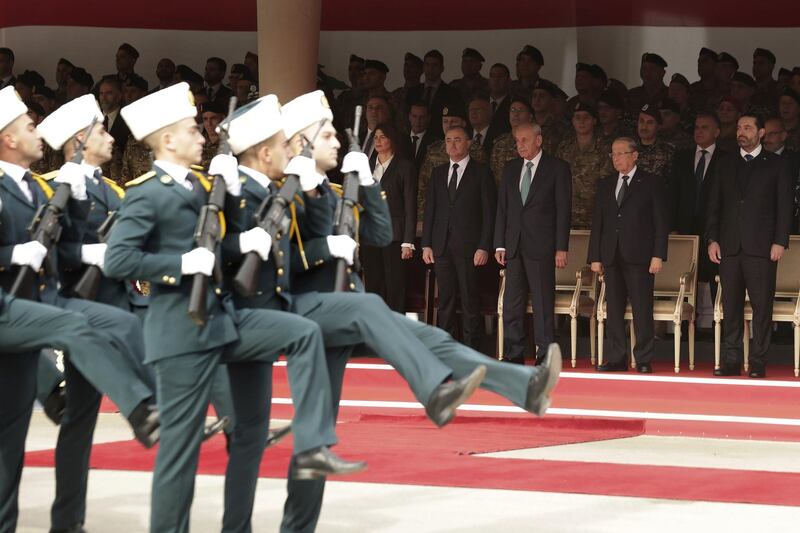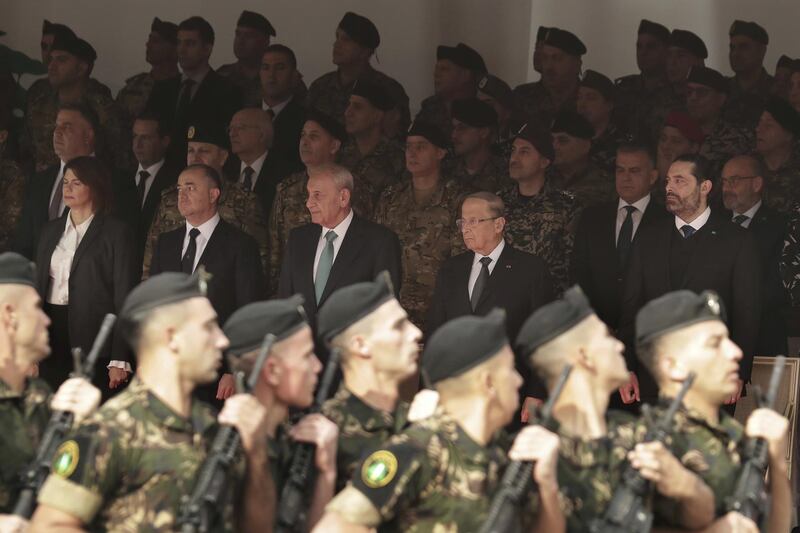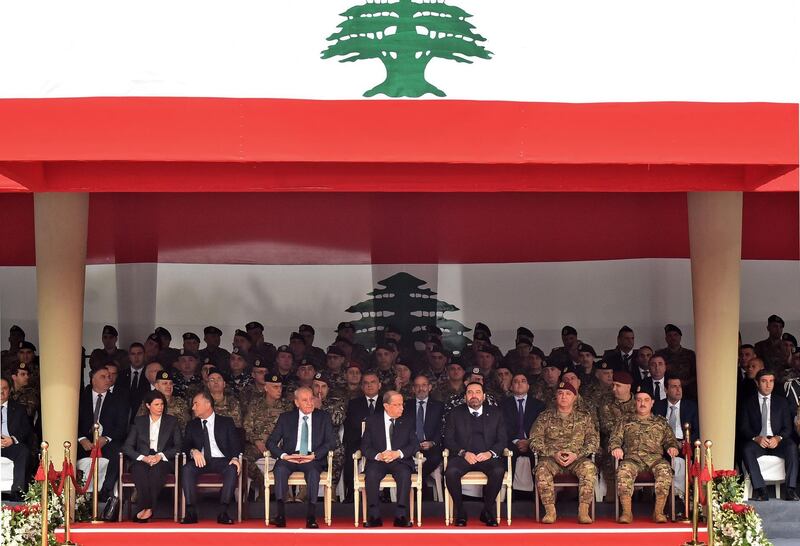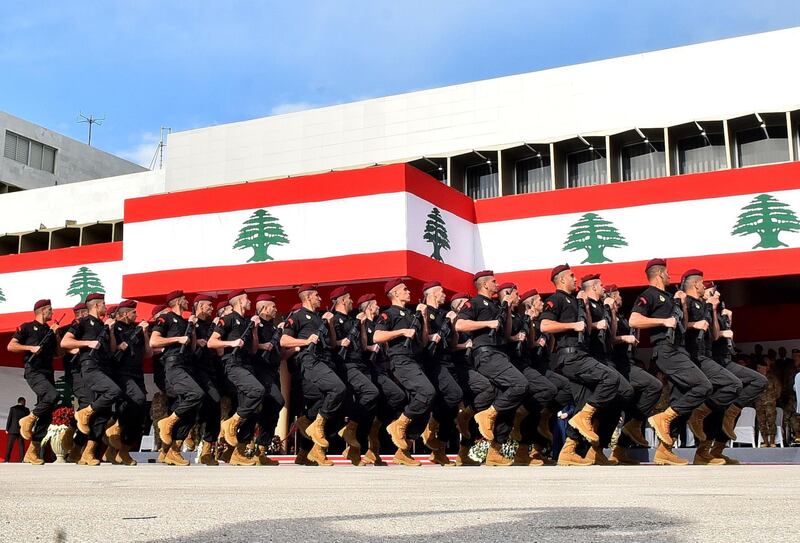Hundreds of Lebanese citizens marched joyfully through Beirut on Friday to celebrate their country’s 76th Independence Day.
It comes as the traditional austere military parade was relocated to the Defence Ministry because of tensions fuelled by anti-government protests that have paralysed Lebanon’s political class.
Crowds representing some of the 41 professions or groups, including mothers and fathers, paraded through the capital’s Martyrs Square in the early afternoon.
Waving the Lebanese flag, thousands cheered them on under the bright autumn sun as others distributed flowers.
Participants said this was a first in Lebanese history.
“For the first time, we feel that this is a national celebration," said Peter Mouracade.
Carrying his baby son on his shoulders, he took part in a “daddy’s parade” with a dozen other men.
“There is a real resurgence of patriotism,” agreed his friend Ralph Raad, who said that he wanted to show solidarity with “all the Lebanese fathers” who could not be present because they had to live abroad to find work.
High unemployment is one the many grievances of the Lebanese against its ruling elite which has been in power since the end of the civil war in 1990.
Lebanon creates six times fewer jobs than its labour market needs and exports more graduates than any country in the Arab world, according to a 2019 government study quoted by Reuters.
Local media reported that hundreds of Lebanese expatriates landed at Beirut airport on Friday afternoon to join the celebrations.
Independence Day is normally celebrated with a military parade attended by top officials on Beirut’s sea front but it was relocated this year to the Defence Ministry south-east of the capital because of security concerns.
Triggered on October 17 by a proposed tax hike, protests have exacerbated the unpopularity of the Lebanese political class, which is widely believed to have mismanaged the country’s finances, pushing it to the brink of collapse.
The festive atmosphere in Martyr's Square sharply contrasted with the violence earlier this week that occurred when protesters stopped MPs from entering Parliament.
One policeman held a red flower in his hand as he watched the parade. The extra barbed wire that had been installed on Tuesday had been removed.
Participants in Beirut’s Independence Day celebrations said they were proud to display their unity while maintaining pressure on politicians to form a new government that would pay attention to people’s demands of a fairer, non-sectarian society.
Prime Minister Saad Hariri resigned on October 29 and political parties have been unable to agree on a successor since.
"Independence Day is usually taken hostage by politicians. We used to have no role to play. Today, the people are asking for their independence from the political class which they reject", Mr Mouracade told The National.
Wearing her professional uniform, Hiba Azar, a nephrologist, said that she feared that Lebanese hospitals, which enjoy a good reputation in the region, would soon start struggling because of the liquidity shortage which has hindered imports that are vital for the Lebanese economy.
“In Lebanon, it has become a problem to import material from abroad. We risk (medical) shortages if we do not have a government soon that is accepted by the entire population and represents us,” she said, as she took part in a march of health professionals.
The presence of young people, sometimes as young as 15-year-old Duaa Hadidi, who came with her wheelchair-bound sister, was also strong.
"There are no facilities to help her. When I push her, I cannot get onto the sidewalk. It really breaks my heart to live in such a country. Our dream was to leave Lebanon, but we saw a glimpse of hope since protests began", she told The National, minutes before pushing her younger sister to the front of the march.
Behind the two girls, teachers, students, lawyers, retired soldiers, environmentalists and many more followed.
